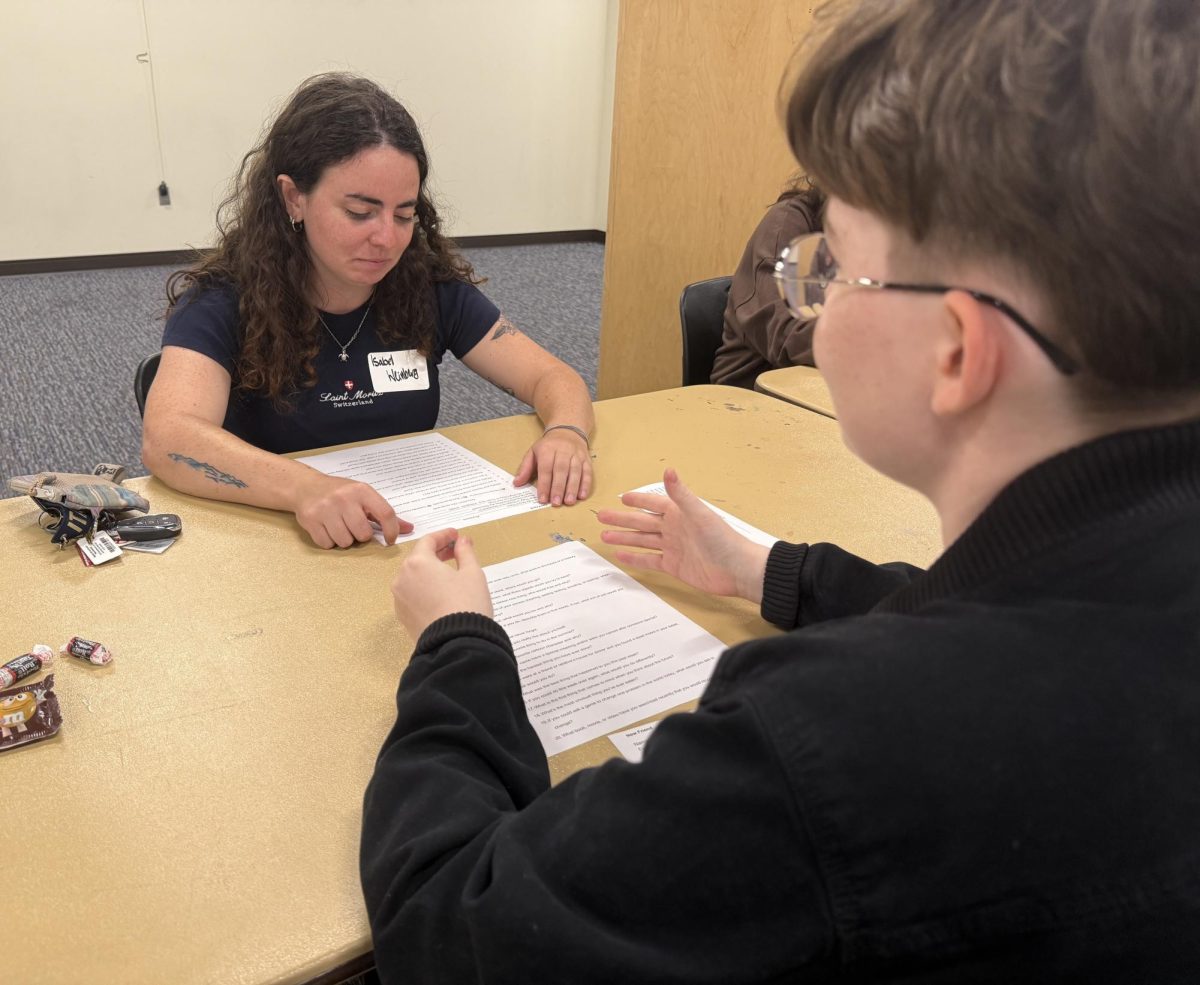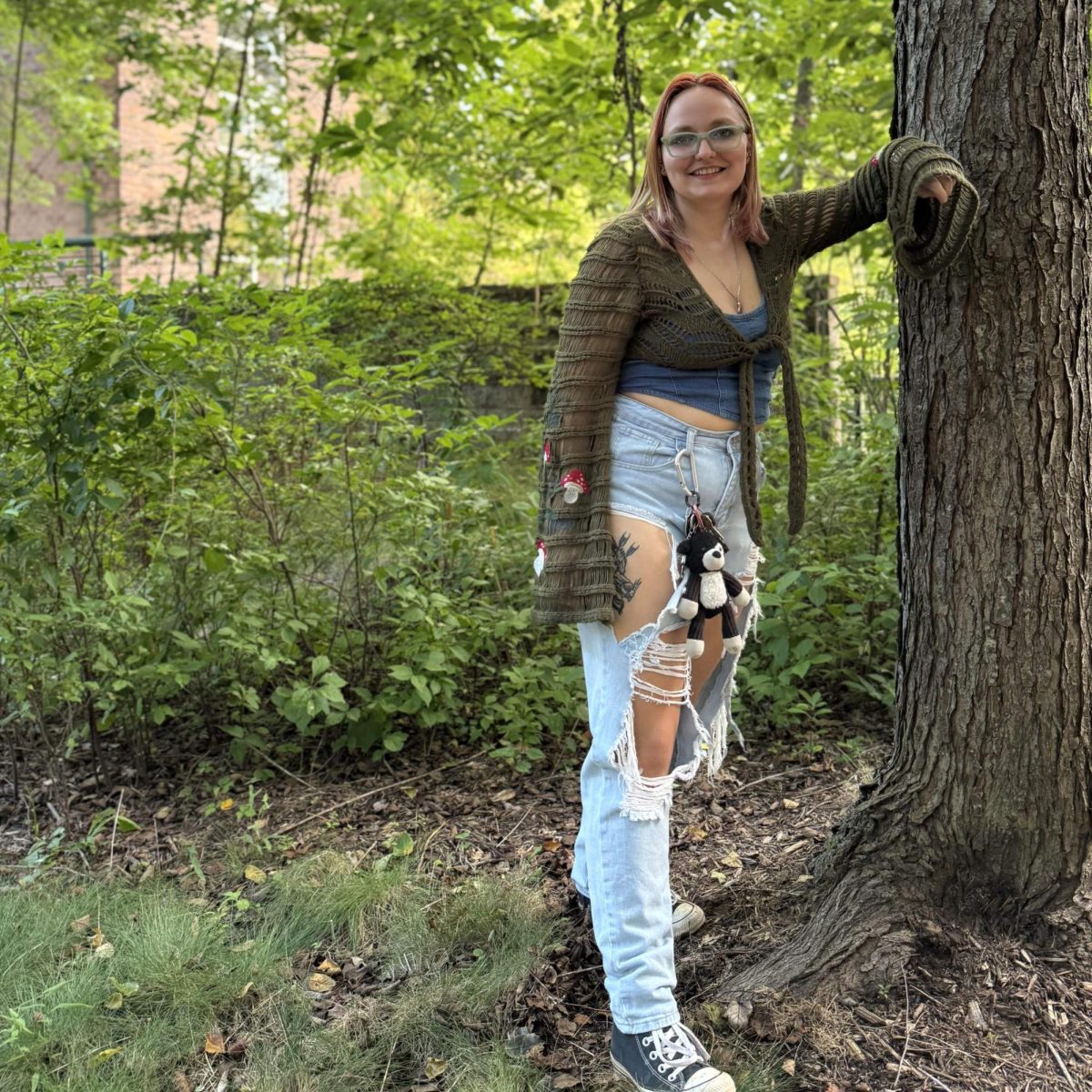Rosa Fallon
Arts & Features Staff Writer
[email protected]
As part of UNC Asheville’s Visiting Writer Series, guest author Cris Beam came to campus to illuminate the concept of empathy which she explores in her most recent book, I Feel You: The Surprising Power of Extreme Empathy.
Beam is also the author of I am J, the first book with a transgender character to appear on the state of California’s recommended reading list for public high schools. During her lecture on Nov. 8, she discussed the commodification of empathy, the teaching of empathy in schools and the concept of empathy as an interruption of power.
“Empathy is a word that sounds redemptive,” Beam said. “It is an orientation that, should we adopt it en masse, could extricate us from our violence and our greed.”
While empathy may sound redemptive, Beam said the term has a variety of meanings which can result in unclear effects.

“It is a term so varied in meaning and slippery in application, it can have ambiguous, even deleterious effects,” she said. “So empathy, when applied artfully and in the right context, empathy can be highly moral and deeply liberating.”
According to Beam, empathy did not start gaining the attention of researchers until the late ‘90s.
“Thousands of schools across the country now teach empathy in their classrooms as part of their curriculum,” Beam said.
She said teaching empathy in schools exists as a response to its decrease in humans. Beam cited a recent study conducted on 14,000 college students in which students’ levels of empathy were measured using a tool called an ‘Interpersonal Reactivity Index.’ She said 75 percent of college students rated themselves as less empathic in this study.
“When this came out, people freaked out. All these articles came out saying, ‘students are less empathic, and we’re going down,’” Beam said.
Empathy is also taught because of bullying, she said. Beam said schools think that teaching empathy is a good response.
A corporate push also drives schools to teach empathy, according to Beam. She said the internet impacts empathy and results in a commodification of empathy.
“In these days of video streaming, corporations can no longer rely on a mass market television commercial to reach an audience. Instead, they count on recording us individually online,” she said.
Corporations define this kind of marketing as ‘empathic marketing,’ she said.
“Capitalism is milking the trend of all things empathy but is also building a culture that perverts our very understanding of the concept,” Beam said. “In other words, we expect our watches and our phones and our computers to provide us with experiences totally for us, we feel empathized with in a particular way which has led consumers to need a particular kind of empathy.”
Iva Veazy, an independent LGBTQ coach recently moved to the Asheville community. She said the talk caused her to think about the impact of empathy on the world.
“It made me think of how a genuine form of empathy can be very healing on not only an interpersonal level and personal level, but a global level,” Veazy said. “Because we have empathy for other people instead of trying to find ways that we don’t like them, then we are not as inclined to start wars.”
Veazy expressed a strong aversion to the thought of corporate empathy.
“It seems very superficial to me. Each person is individually isolated and targeted for specific products,” Veazy said. “She was saying that while that makes you feel needed or noticed, it’s purely a capitalistic sort of thing, it’s not really what I would consider to be heartfelt.”
Veazy said people who think would be less likely to be brainwashed by the idea of empathetic marketing.
“Some people will find it very convenient and easy,” she said. “Others will prefer something that will actually nourish them.”
Beam spoke about empathy as an interruption of power, specifically focusing on the apartheid crisis in South Africa. She said while visiting South Africa, she met a woman named Pumla Gobodo-Madikizela, a South African psychoanalyst who served on the original Truth and Reconciliation Commission in South Africa.
The Truth and Reconciliation Commission is a restorative justice body assembled in South Africa after apartheid ended. Beam said after meeting Gobodo-Madikizela, she became interested in the idea of empathy for the enemy in post-apartheid South Africa. She said the head of Vlakplaas, apartheid prison, was known as ‘Prime Evil’ in South Africa and was one of the prime architects of apartheid.
According to Beam, he was originally given two life sentences of 212 and was let out on parole. During her talk, she explored how and why the South African government would let somebody like that out on parole, tying her thoughts into the concept of empathy as an interruption of power.
“Part of the idea was this idea of empathy as an interruption of power. The idea was that inside, he was able to be seen as one bad guy and outside, we had to think about him as everybody’s complicit in the making of apartheid, so we couldn’t just project all of our ‘bad guy fears’ onto him,” Beam said.
Lori Horvitz, chair of the English department at UNCA, said empathy is complicated.
“Empathy is complicated and I think that Cris was trying to critique the American notion of empathy and she talked about how it’s almost corporatized,” she said.
Beam said one can become more empathetic through reading and the arts.
“There are a lot of studies that show reading literary fiction builds empathy because when we understand character’s motivations, needs and desires through subtle cues in fiction, we can understand the other.”


![Brooke Pedersen [second from the right] and Luis Reyes [right] hold banners during the Wrap The Woods event.](https://thebluebanner.net/wp-content/uploads/2025/09/ELIZABETH_PRITCHITT_IMG_3470-1200x804.jpg)





















